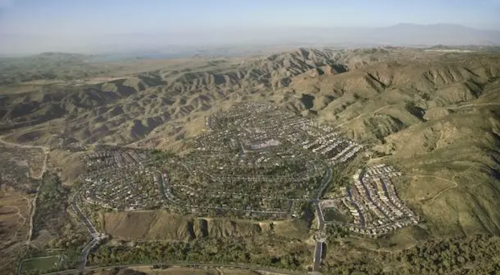As the topic of suburban sprawl and anti-growth legislation heats up with the upcoming federal elections, the Sierra Club recently released its second annual report on sprawl.
|
Most Sprawl-Threatened Large Cities
(population over 1 million) 1. Atlanta 2. St. Louis, Mo. 3. Washington, D.C. 4. Cincinnati, Ohio 5. Kansas City, Mo. |
|
Most Sprawl-Threatened Medium Cities
(population 500,000 to 1 million) 1. Orlando, Fla. 2. Austin, Texas 3. Las Vegas, Nev. 4. West Palm Beach, Fla. 5. Akron, Ohio |
|
Most Sprawl-Threatened Small Cities
(population 200,000 to 500,000) 1. McAllen, Texas 2. Raleigh, N.C. 3. Pensacola, Fla. 4. Daytona Beach, Fla. 5. Little Rock, Ark. |
| Source: The Sierra Club |
The group ranked states in several categories, including community revitalization, open space protection, transportation planning and land-use planning.
The club cites Oregon as having the best plan to limit development, slashing its annual loss of agricultural land from 30,000 acres to 2000 acres. Vermont is hailed as leading the nation in reforming communities by successfully battling large commercial developments in small-town settings.
According to the study, states spent over $7 billion last year to preserve open spaces. Maryland was the leader, budgeting $140 million over the next five years to protect existing public land and creating additional public property. West Virginia ranked worst, with a spokes-person for the club saying the state simply doesn’t have the funding to protect their open spaces.
Rhode Island was cited as having the most effective plan for using money that might build new highways for other transit choices. The example used was allocating millions of dollars to build 50 miles of new bike paths. States at the bottom of the list for transportation planning were Arkansas, Mississippi, Oklahoma, Alabama and Tennessee. The group stated that these states were putting too much money into new highways instead of repairing existing roads, which they say is the wrong approach to stopping urban sprawl.
The entire report, including which groups and experts were consulted, may be accessed on the Sierra Club’s website at www.sierraclub.org/sprawl/report99/











